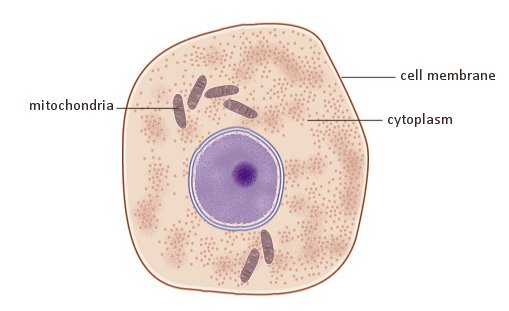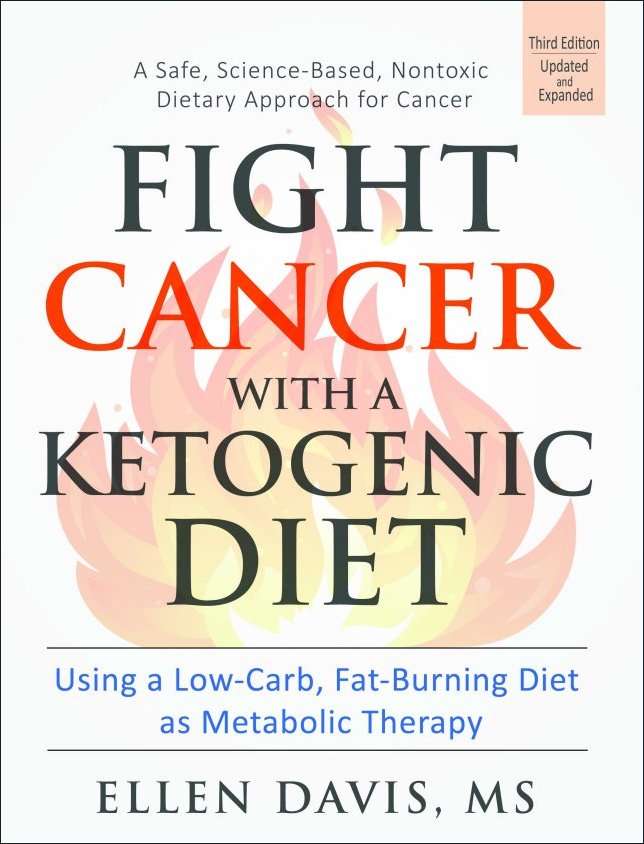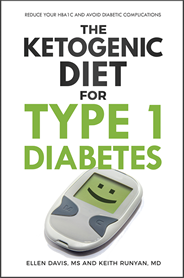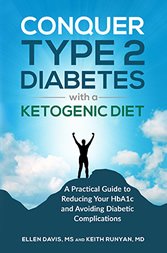Natural Supplements for Good Health

Here's a list of recommended natural supplements that you may want to consider adding to your ketogenic diet regimen. I have included the reasons why you would take these supplements, and any effects you might experience as your body gets used to them.
Many of the reasons for taking these natural supplements have to do with supporting cellular respiration and reducing inflammation through increasing antioxidant intake. Having healthy mitochondria is the bedrock for good body health. If cellular respiration is well, than all the body systems will be well.
Note of Caution: if you have a kidney or heart condition, or take medicines for blood pressure or cholesterol, please check with your doctor first before taking any of these supplements.
Basic Recommended Supplements for Good Health
- A basic multivitamin. I take Nature Life's Mighty Mini Vite, because it offers just baseline levels. Taking 5000% of the daily requirement of any B-vitamin is not a good idea.
- Magnesium Citrate supplement (200-400 mg per day), would benefit just about everyone.
- CoQ10, which is a energy substrate, is also important, especially if you over 30 years old.
- Vitamin D is a critical vitamin in which many people are deficient. You should get your Vitamin D levels checked before starting supplementation.
- L-Carnitine is also helpful for burning fat more efficiently and support mitochondrial function.
- Probiotics for gut health.
More on CoQ10
- CoQ10 (100-300 mg per day): CoQ10, also known as Coenzyme Q10. CoQ10 is a powerful antioxidant and is the central molecule in the cellular process of creating energy. Your body makes its own supply, but as you age, the amount that is created internally decreases, hence the need for natural supplements. Without CoQ10, the cell mitochondria cannot function correctly, and energy production will be reduced, resulting in fatigue. Worse, the mitochondria in your cells would quickly succumb to free radical damage without CoQ10. This is in fact what happens to many people who take cholesterol lowering drugs called statins. Statins block the production of CoQ10 in the body, and it results in mitochondrial damage. CoQ10 has two forms - ubiquinone, which is a pre-form that can be converted in the body to a more absorbable form. The other form is ubiquinol. If you are older, you may want to take the ubiquinol form, which is the easiest for older bodies to absorb. However, it is more expensive. If you buy natural supplements of ubiquinol, look for the Kaneka lab reference on the bottle, as they have the patent and created this form.
More on Magnesium Citrate
- Magnesium citrate or malate (400-600 mg day): (Again, if you have a kidney or heart condition, please check with your doctor first.) Magnesium, a mineral, activates over 76% of the enzymatic processes in the body and is especially critical for cellular respiration and mitochondrial function. A magnesium deficiency can cause some serious health problems. Taking natural supplements of magnesium or eating more magnesium rich foods is one of the best things you can do for your health.
More on Vitamin D
- Vitamin D (400-2500 iu per day): Vitamin D has so many critical uses in the body, it might be easier to write what it doesn't do. There are two forms of vitamin D: vitamin D2 (or ergocalciferol) and vitamin D3 (or cholecalciferol). If you buy natural supplements of Vitamin D, make sure they are gel caps, not hard tablets, and that they contain D3 (Cholecalciferol), not D2.
Since Vitamin D is a fat soluble vitamin and can be stored in the body, PLEASE have your levels checked via blood test before you start a vitamin D supplement, and start slowly with 1000 IU per day. Then have your levels checked after a month and see if you are in the healthy range of 30-100 ng/mL.
Vitamin D can also be produced within the body when the skin has access to ultraviolet sunlight, but if you live in the North, this is less likely to happen, especially in the winter time. I suspect that the colds and flu people develop in the winter are rooted in a lack of Vitamin D. Vitamin D is especially beneficial for the respiratory and skeletal systems and helps keep the lungs and bones healthy. Food sources include cod liver oil, fatty fish, sweet potatoes, egg yolks, butter, and fortified milk. (Side note: if you supplementing with calcium, it doesn't do much good without adequate amounts of vitamin D and saturated fat.)
Basic Multivitamin/Multimineral
- A good all purpose multi-vitamin and multimineral without iron: Make sure it includes all the basic vitamins and minerals and is a low dose type. There's no need to take a supplement that gives you 5000% of anything. Nature's Life Mighty Mini Vite Micro Tablets are a good basic product, although they are missing iodine. A small kelp supplement or iodized salt can fix that.
I also recommend that you buy vitamins without iron because iron should never be supplemented unless you have had your iron levels checked and a doctor recommends iron supplementation. Bacteria and viruses LOVE iron, and will use any extra to gain a foothold in the gut. Iron also increases the amount of free radicals in the body, which damage the process of cellular respiration.
So while necessary in small amounts, iron is not good in large amounts. If you have a chronic iron deficiency or anemia, this is a sign you are gluten intolerant. Cutting grain based foods from your diet should correct the problem. See Dr. Stephen Wangen's book Healthier Without Wheat: A New Understanding of Wheat Allergies, Celiac Disease, and Non-Celiac Gluten Intolerance for more information about anemia and wheat gluten.
Probiotics
- It's also important to consume some sort of probiotic each day. You can take it in supplement form, and eat fermented foods such as greek yogurt, kimchee, kefir or other similar food.
Natural supplements can greatly improve your health, but be sure to check with your doctor if you have any pre-existing health conditions that might contraindicate these supplements.
Caution on Fish Oil
There's a huge push in the medical community to take fish oil for heart health. Fish oil can have some benefit IN SMALL AMOUNTS, I just want to add a cautionary note about taking large amounts of this natural supplement.
Not only is fish oil a polyunsaturated fat and susceptible to rancidity and oxidation in the body, people with blood sugar issues should not take large doses of fish oil or salmon oil. There are several studies which demonstrate that large doses of these supplements are associated with a higher risk for Type 2 diabetes. It has been shown that they have a detrimental effect on blood sugar, and can cause large elevations in fasting blood sugar, especially if the person taking it is pre-diabetic or diabetic.
The studies I've read are here, here, here and this study discussed the correlation between taking large amounts of fish oil and the development of Type 2 diabetes.
All of my books are available in electronic PDF, and now in paperback on Amazon!
 |
 |
 |
|
Buy paperbook on Buy paperback on Amazon Buy the e-Book via Paypal |
Buy paperback on Buy paperback on Amazon Buy the e-Book via Paypal |
Buy paperback on Buy paperback on Amazon Buy the e-Book via PayPal |